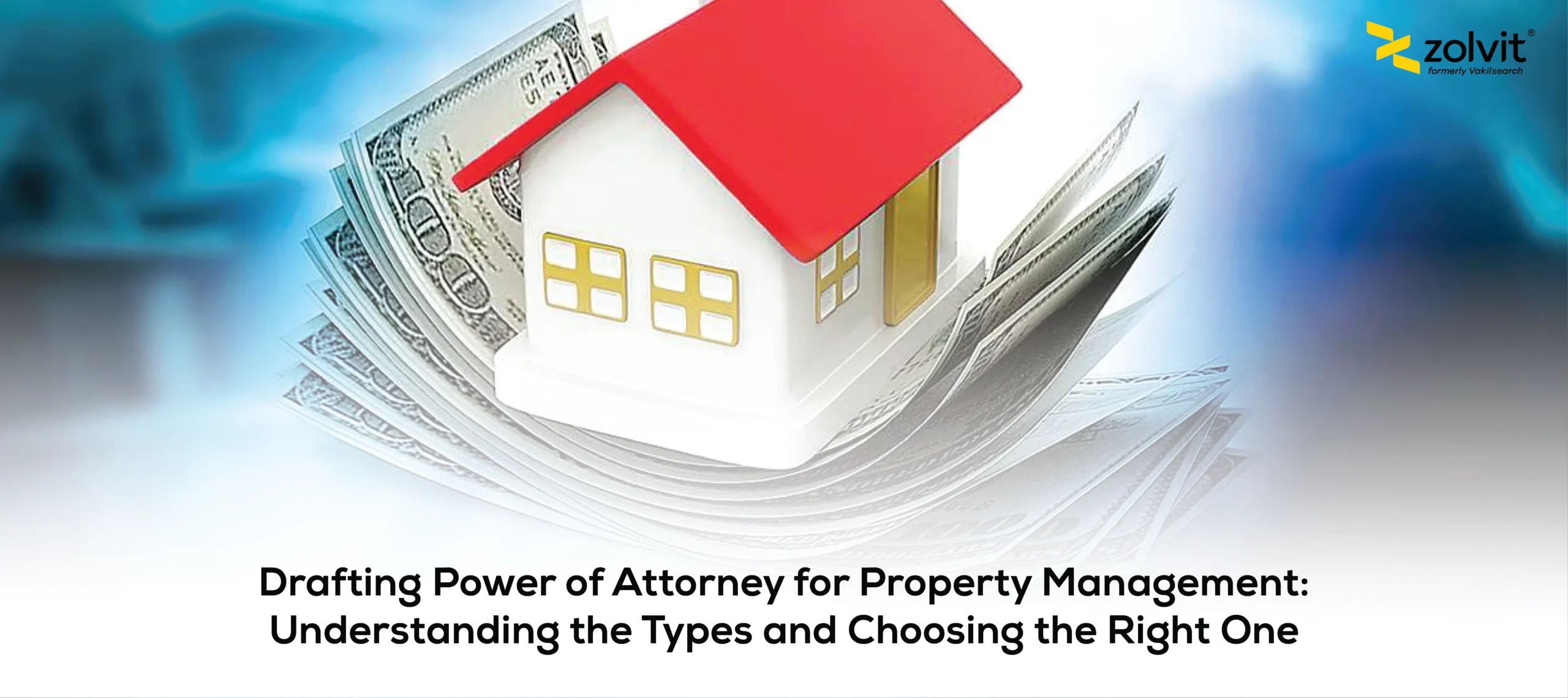Drafting a Power of Attorney for Property Management

Introduction of POA for Property Management
Family property is difficult to manage, especially when one needs to shift out for work purposes. The case study describes how a client successfully set up a PoA for his father to handle property matters while keeping control over key decisions, showcasing the importance of drafting power of attorney.
Situation of POA for Property Management
The client owned certain lands that his grandfather had given him. There, a dispute arose about whether this was ancestral or not. He plans to shift to some other state for his employment concerns and cannot manage the land himself.
He trusted his father to take care of the property but was concerned about how to give him legal authority. His main goal was simple:
- Let his father tend the land.
- Ensure his father could not sell or transfer ownership without permission.
The client needed a clear, legally legitimate solution that would protect him while granting his father empowerment to deal with the property.
Challenge of POA
This is a first-time case for him; he never had an experience with such Power of Attorney documents before. The client did not know:
- The type of PoA which would suit his needs.
- The limit of his father’s powers without restricting day-to-day management.
- The legal steps to be followed in order for the PoA to be valid.
He sought legal advice to ensure that everything was correct and that his interests were represented.
Solution
The lawyer, in simple terms, explained the various types of Power of Attorney. He could understand his options now very clearly.
- General Power of Attorney (GPA): Allows broad powers to manage the property. May include the right to sell or transfer ownership where not restricted.
- Special Power of Attorney (SPA): Restricts the powers to specific tasks, such as paying property taxes or dealing with repairs. The agent cannot do anything beyond what is mentioned.
- Power of Attorney Limited: Gives authority for small clearly defined responsibilities. Ensures that no major decisions like selling or leasing are allowed.
- Durable Power of Attorney: Remains effective even if the client becomes ill or incapable of acting. Useful in long-term management but has to be with restrictions.
- Power of Attorney-Springing: Only becomes active under certain conditions – say, the client being unavailable.
After reviewing these options, the client chose a General Power of Attorney. He wanted his father to:
- Manage the property.
- Manage everyday affairs like taxes, maintenance, and other legal issues.
This meant, in essence, that toward ensuring that the land was duly protected, the GPA would thus contain a straitjacket clause, which would prevent his father from selling or even otherwise transferring the property in question without the written consent of the client.
Drafting the Document
The property case lawyer had drawn and presented a straightforward, express Power of Attorney document which included:
- What the father could do, like managing rent, repairs, and legal matters.
- What he could not do, especially selling or transferring ownership.
The lawyer also explained that what matters most is legal formalities, which will help in future times to avoid disputes.
- Stamp Paper: The PoA was to be prepared on proper stamp paper to make it legally valid.
- Notarization: It was executed in the presence of a notary public to ensure authenticity.
- Registration: For property-related matters, registering the PoA with local authorities added an extra layer of legal protection.
The attorney took the client through these steps so that the PoA became fully enforceable.
Next Steps
Once the Power of Attorney was arranged, the client did the following steps:
- PoA shared: Copies were given to the father and any other relevant parties, such as local property offices.
- Kept a Backup: The client has kept a copy for his records.
- Updates of plans: The attorney recommended revising the PoA from time to time. This will keep the document productive in case the situation changes-for instance, if the land dispute were to get resolved sometime in the future.
Outcome
The client successfully delegated property management to his father while protecting his ownership rights. This allowed him to move to another state for work without worrying about the property.
Key benefits included:
- The father was able to handle daily activities without any procrastination.
- The client’s control over major decisions, like selling the land, remained secure.
Conclusion
Setting up a Power of Attorney does not need to be complicated. The right legal advice created a document that balanced flexibility with control for this client.
This case shows how important it is to:
- Choose the type of Power of Attorney that is appropriate.
- Clearly outline the powers and restrictions.
- Follow all legal steps such as notarization and registration.
By doing so, the client made sure his property was well managed, while he was out of state attending to his job. The legal advice by Zolvit was of great importance in aiding him in making the right decision that suited his needs.